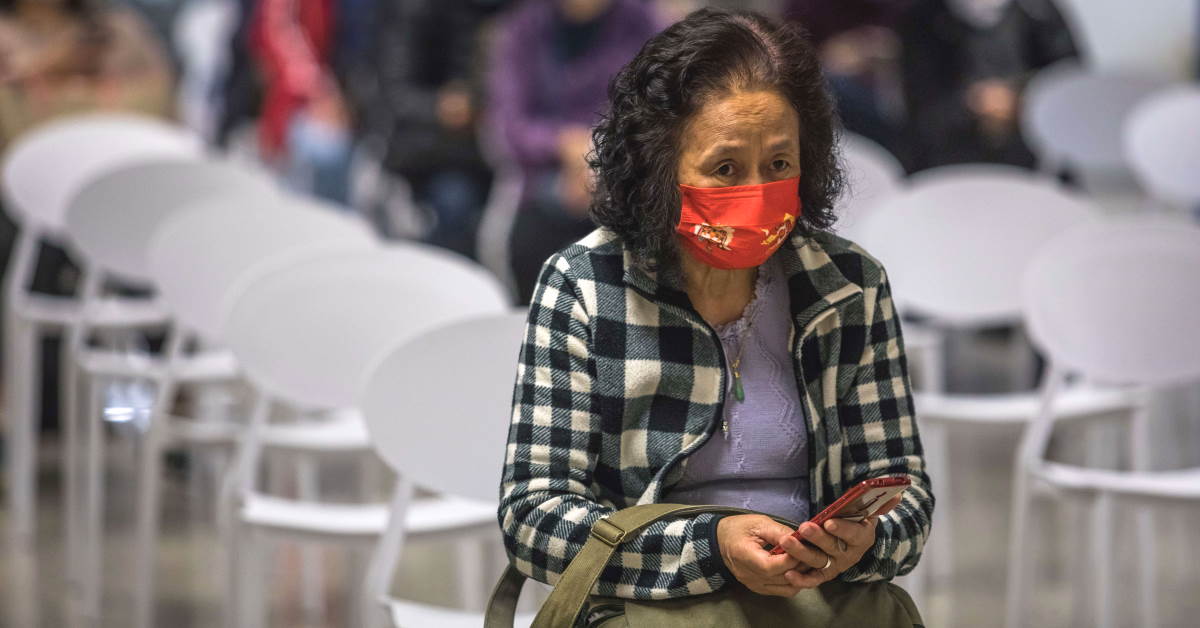Long COVID could create a generation affected by disability, with people forced out of their homes and work, and some even driven to suicide, a leading expert has warned.
Prof Danny Altmann – an immunologist at Imperial College London – said that the United Kingdom’s (UK) current approach to COVID fails to take the impact of infections sufficiently seriously, adding that more needs to be done to aid diagnosis and treatment of long COVID.
“It’s kind of an anathema to me that we’ve kind of thrown in the towel on control of Omicron wave infections and have said ‘it’s endemic, and we don’t care anymore, because it’s very benign’,” he said. “It just isn’t. And there are new people joining the long COVID support groups all the time with their disabilities. It’s really not OK, and it’s heart-breaking.”
According to data from the Office for National Statistics, by the end of January this year about 1.5 million people – or 2.4 percent of the population – in the UK said they were experiencing ongoing symptoms more than four weeks after their first suspected COVID infection, with 45 percent reporting that infection was a year or more ago.
The findings chime with a recent UK study that found only around one in three patients who had ongoing COVID symptoms after being hospitalised with the disease reported feeling fully recovered a year later.
Asked whether long COVID could lead to a generation affected by disability, Altmann agreed. “Totally,” he said.
But he emphasised that long COVID is not limited to the UK. “This is a global problem,” said Altmann. “We’ve got at least five million people on the planet with long COVID – [that is] very much a lower limit estimate. And they’ve all got a wide array of problems and they are big problems. It’s going to drive people out of housing, out of work and in some cases, to suicide.”
An expert on T-cells and autoimmunity, Altmann has recently teamed up with journalist Gez Medinger – who himself has long COVID – to write the Long COVID Handbook, set to be published later this year.
200 Symptoms
For Altmann, the decision to become involved in research into COVID and its ongoing impact was a no-brainer.
“We were people who had decades’ worth of viral immunology, and autoimmunity. So, you know, what else have we been training for?” he said.
But long COVID is far from simple. One study has suggested the condition is associated with more than 200 symptoms, from brain fog to heart palpitations, while microscopic damage to the lungs, micro clots and low levels of certain antibodies are among the mechanisms experts have suggested could be linked to long COVID.
One problem, said Altmann, is that different groups of researchers are all following their own favourite hypotheses.
“All the scientists and medics working in this mean really, really well,” he said. But, he added: “I think we’ve all got to kind of put our egos to one side and get out of our silos.”
Perhaps unsurprisingly, however, Altmann believes his own field could play an important role.
“I think that some of the immunological hypotheses can form a kind of unifying umbrella for lots of those things, in the same way as lupus is a very diverse disease that is all at the end downstream consequences of a relatively focused autoimmune assault,” he said.
The idea appears to match data suggesting long COVID is more common in women.
“Nearly every autoimmune disease I’ve ever looked at is quite skewed towards women,” said Altmann, adding it is not difficult to see how sex hormones could be involved in immune regulation.
But Altmann seems dismayed at a lack of urgency, or appreciation of the devastation long COVID can bring, among those in power.
On Tuesday a report published by the All-Party Parliamentary Group (APPG) on coronavirus found the UK government’s policymaking on COVID has “continuously failed” to take long COVID into account and has not “adequately funded” research into treatments for the condition.
“We’ve kind of paid lip service to it, and not really taken it sufficiently seriously,” said Altmann, adding that while long COVID clinics have been set up in the UK they vary enormously in terms of the service they offer.
And there is, potentially, another cause for unease: Altmann notes some people who were infected with the earlier SARS coronavirus were still experiencing symptoms eight years later.
Slow Pace Of Research
Altman said an important step is to tackle the rising COVID infection level in the UK, adding the debate should not be polarised to “pro-lockdown” or “pro-COVID”.
“Then we need to be seriously joined up on our efforts to work out what long COVID is and how we’re going to diagnose it and how we are to treat it,” he said.
One frustration, keenly felt by many of those living with long COVID, is the slow pace of research. It is an issue Altmann appreciates, although he maintains standards must be kept.
“I think, alright, research projects around the world have been put in place. But it’s hard to imagine that they’re going to deliver the big answers in less than nine to 12 months from now,” he said.
When asked what has surprised him most about long COVID, Altmann’s answer is stark: “Partly just how ghastly and pernicious and prevalent it is,” he said, adding another surprise was new cases emerged even among those who have been vaccinated.
For Altmann, the current COVID situation in countries from Scotland to Hong Kong is no reason to be sanguine.
“You can’t just shut your eyes and turn away and say I’ve lost interest and it’s not a problem to me anymore,” he said. “Because the virus calls you out on that.”
